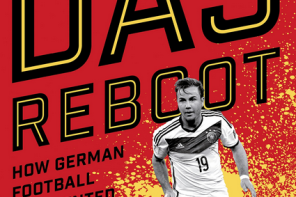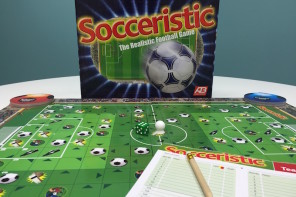It might be difficult for younger supporters to comprehend, but there was once a time when Newcastle United weren’t very good at football. No, no, I’m serious. The malaise of today is profoundly grim, but in a very different way. The sense that your football club no longer exists to pursue success, or even glorious defeat, but that it serves as someone else’s investment, is spiritually corrosive. In 1992, however, the problems were rather more tangible.
On the first day of that year, Newcastle were thumped 4-0 by Southend United at Roots Hall. For a brief time, the Shrimpers sat at the top of the second division. The Magpies were very much at the other end. With just six wins in 26 league games, and only one more victory would follow in the next eleven matches, relegation to the third flight beckoned. Attendances had dropped as low as 13,000 in a less than impressive stadium that only held 30,348 anyway. And then Kevin Keegan returned.
Martin Hardy’s ‘Touching Distance’ tells the story of what followed, not just for the club, but for the city itself. In the next four and a half years, Keegan dragged Newcastle from the brink of humiliation up into the new-fangled Premier League and so, so close to the league title. His infectious enthusiasm, his belief that anything was possible, his ability to quickly win and then retain the loyalty of his players, was transformative.
Keegan’s side became an emblem of a region that had been ravaged by a decade of Thatcherism, but was lifting itself from the floor once again. The city was booming, it was a party town and it embraced its resurgent football team. History has been unkind to Keegan. We remember his toilet cubicle resignation as England manager. We remember how he struggled upon his return to St James Park with an owner who was far less enamoured with him than Sir John Hall ever was. We remember Manchester City and Fulham and it clouds our memories of what happened in the north-east between 1992 and 1997. We forget just how much fun it all was.
That’s the real strength of Hardy’s writing, that it takes in so many voices from within the club and throughout the city. You cannot read this and be left in any doubt as to what Keegan meant and what he achieved. But it’s the little touches that really stand out. The way he personally drove new signings and their families around, showing off the sights and recommending homes. The way he looked after them in contract negotiations. The way he quietly slipped around Tyneside, turning up to fundraisers and changing lives on condition that there was no publicity.
If there is a weakness here, it’s that Hardy’s scope can sometimes be too wide, the structure a little too loose. There are occasions when the excitement is building, the pace is frantic and then the narrative wanders down a less compelling path before scampering back to the main event. But it’s hardly something the reader can resent, certainly no more than the resentment felt when Newcastle wobble in the final furlong and fall painfully short of glory. Would it really have been so hard for the Football Gods to just leave this alone and let it happen?
Newcastle didn’t win the league in 1996 and in 1997, Keegan walked away. There would be no fairytale ending and no uplifting final act. Manchester United were the better team, the harder team, the smarter team, the side more suited for the way football would become. Newcastle were doomed to be remembered as an oddity. The last club to clatter up from the second division, laughing off suggestions that they would seek consolidation and declaring that they would proceed directly to a title challenge. The last glorious moments for a sport that would be so distorted by money that ten years later, upon Keegan’s return, it was hard to imagine how Newcastle could even hope to rise from twelfth to fourth, let alone to challenge for the title. Hardy’s book is a celebration, not only of Keegan and Newcastle, but also of how much fun football used to be. For that reason, it’s as poignant as it is entertaining.






